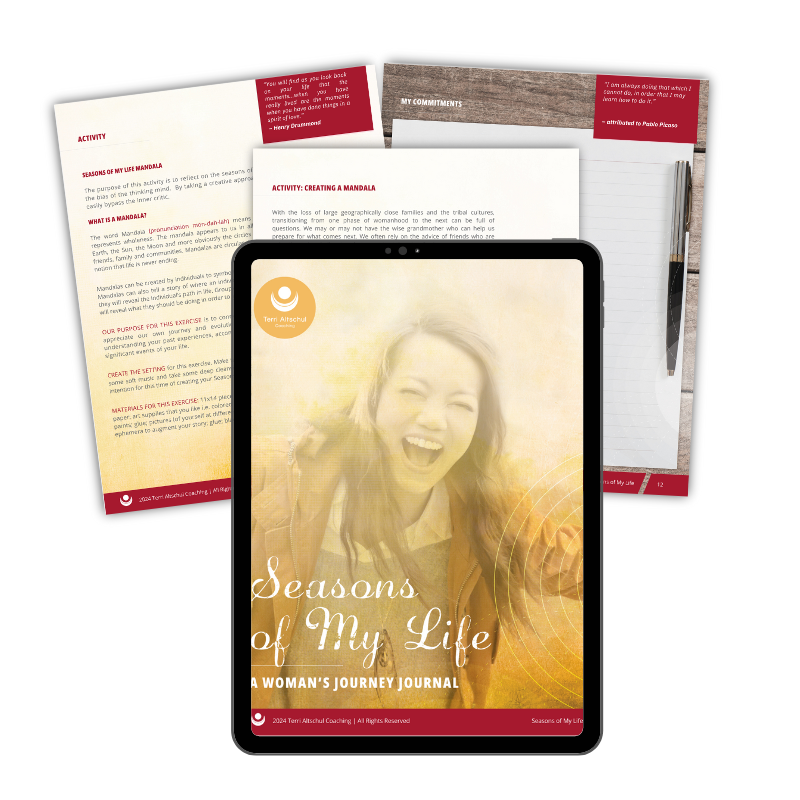
As I sit at my desk while the house is quiet and everyone is still asleep and the sound of birds outside my window connects me to the rhythms of life, I find myself contemplating the concept of completion. What does it mean to truly finish something? In the tapestry of our lives, filled with projects, relationships, goals, and dreams, how do we know when a chapter is really closed? This reflection brings me to consider both personal and broader philosophical and psychological perspectives on completion.
The Gestalt Concept of Completion
In Gestalt psychology, the concept of completion is pivotal. Gestalt principles emphasize that humans naturally seek patterns and closure in their experiences. This need for completion, known as the Zeigarnik effect, suggests that people remember uncompleted or interrupted tasks better than completed ones. It is as if our minds are wired to seek closure, to wrap up loose ends, and to bring a sense of wholeness to our fragmented experiences.
Reflecting on my life, I see how the Zeigarnik effect has played out in various ways. Unfinished projects nag at my subconscious, unresolved conflicts linger in my thoughts, and unfulfilled dreams haunt my imagination. The drive for completion compels me to revisit these areas, to bring them to a state of closure, and to find peace in their resolution.
A Buddhist Perspective on Completion
Turning to Buddhism, the concept of completion takes on a more nuanced and introspective dimension. Buddhism teaches that life is a continuous cycle of birth, death, and rebirth, a series of transitions rather than definitive endings. The notion of “impermanence” (anicca) in Buddhism underscores that nothing is ever truly finished in a permanent sense; instead, everything is in a constant state of flux.

From a Buddhist perspective, completion is not about reaching a final endpoint but about finding a sense of acceptance and presence in each moment. It is about letting go of attachment to outcomes and embracing the journey itself. This resonates deeply with me, particularly when I consider the areas of my life that feel incomplete. Rather than striving for a definitive conclusion, I am wondering if I should appreciate the process, be mindful of each step, and find contentment in the here and now.
Melody Beattie’s Insights on Completion
Melody Beattie, renowned for her work on codependency and personal growth, offers yet another layer of understanding. In her book “The Language of Letting Go,” Beattie speaks to the power of letting go as a pathway to completion. She writes about the importance of releasing what no longer serves us, of surrendering control, and of trusting the natural flow of life.
Beattie’s insights resonate with my personal journey. As I contemplate what I need to finish now, I realize that it is not just about ticking off tasks on a to-do list. It is about identifying and releasing the emotional baggage, limiting beliefs, and outdated narratives I may still carry. It is about forgiving myself and others, making peace with the past, and creating space for new beginnings.
My Personal Journey Towards Completion
In this moment of reflection, I recognize several areas in my life that call for completion. First and foremost, there are creative projects that still need to be completed. As someone who values creativity, these incomplete endeavors feel like open loops in my mind. By dedicating time and energy to bring these projects to fruition, I can honor my creative spirit and achieve a sense of satisfaction.
Moreover, there are relationships that require attention. Some need closure, others need healing, and still others need a simple acknowledgment. By addressing these relational dynamics, I can move forward with a lighter heart and a clearer conscience.
Another area of focus is personal growth. There are goals I have set for myself, habits I wish to cultivate, and lessons I need to integrate. By actively working on these aspects, I can align more closely with my values and aspirations.
Finally, there is the need for self-compassion and acceptance. In my quest for completion, I must remember to be kind to myself, to recognize my efforts, and to celebrate my achievements. Completion is not about perfection; it is about acknowledging progress and being at peace with where I am.

Embracing the Journey
As I delve deeper into the meaning of completion, I realize that it is a multifaceted concept. It encompasses the psychological need for closure, the Buddhist acceptance of impermanence, and the practical wisdom of letting go, as advocated by Melody Beattie. Ultimately, completion is a personal journey, one that requires introspection, mindfulness, and self-compassion.
In practical terms, I am committing to finish what I have started. I will revisit those creative projects, not with a sense of urgency but with a sense of joy and fulfillment. I will address the relationships in my life with honesty and empathy, seeking closure where needed and fostering growth where possible. I will continue my path of personal growth, setting realistic goals and celebrating each milestone. And most importantly, I will practice self-compassion, recognizing that completion is a process, not a destination.
In embracing this journey, I am reminded of a quote by Melody Beattie:
"Gratitude unlocks the fullness of life. It turns what we have into enough and more. It turns denial into acceptance, chaos into order, confusion into clarity. It can turn a meal into a feast, a house into a home, a stranger into a friend."
Melody Beattie
Completion, in its truest sense, is about finding gratitude and acceptance in each moment. It is about acknowledging the journey, embracing the process, and finding peace in the present. As I move forward, I carry these insights with me, knowing that each step brings me closer to a sense of wholeness and fulfillment.
Join the Journey
As you reflect on the meaning of completion and embark on your journey towards wholeness, I invite you to dive deeper with “The Seasons of Our Lives” Journal. This unique journal is designed to guide you through the transformative cycles of your life, helping you to capture the essence of each season and find closure where needed.
With prompts, creative exercises, and space for personal reflection, “The Seasons of Our Lives” Journal will be your companion in exploring and completing the various chapters of your life.

Ready to start? Click below to get your copy of “The Seasons of Our Lives” Journal and take the first step towards a more fulfilled and balanced life.
Terri Altschul is an ICF PCC—a Certified Coach with more than 4,00 coaching sessions. She has trained and coached individuals and groups at all stages of their careers and lives in Fortune 100 and 500 companies, Start-ups, and Nonprofit organizations. One of her special gifts is helping you see your untapped potential and identify the blockers to that potential.




